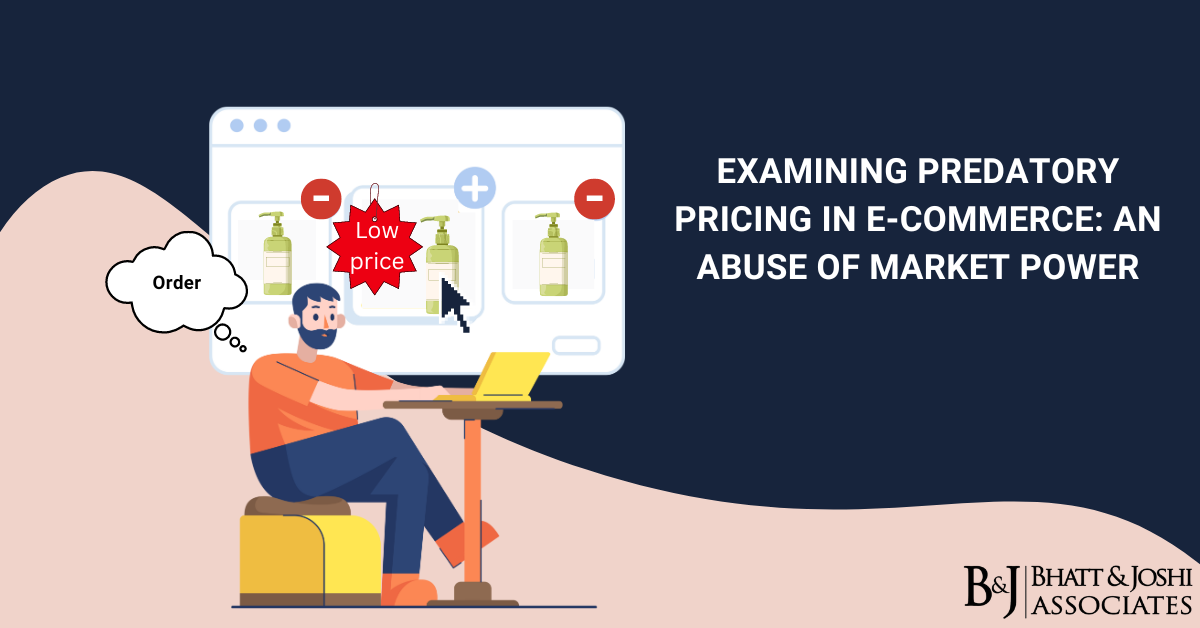Introduction
Competition is the lifeblood of a healthy economy, fostering innovation, driving down prices, and expanding consumer choice. However, when market power becomes concentrated in the hands of a few dominant players, it can stifle competition and harm consumers. In recent years, the rise of e-commerce has transformed the retail landscape, presenting both opportunities and challenges for competition policy. One of the key issues facing regulators is the phenomenon of predatory pricing, where dominant companies use aggressive pricing tactics to drive competitors out of the market and establish monopolies. This article examines the concept of predatory pricing in the context of e-commerce, its implications for competition and consumer welfare, and the challenges of enforcement in the digital age.
The Importance of Competition in the Digital Economy
Competition is essential for promoting efficiency, innovation, and consumer welfare in the digital economy. In e-commerce, where barriers to entry are often low, competition can be particularly fierce. However, the emergence of dominant platforms and online marketplaces has raised concerns about the abuse of market power. Predatory pricing is one tactic that dominant players may use to maintain or extend their market dominance. By undercutting competitors’ prices, these firms can drive them out of the market and ultimately harm consumers by reducing choice and innovation.
Understanding Predatory Pricing
Predatory pricing occurs when a dominant firm sets prices below its costs with the intention of driving competitors out of the market. The goal is to establish a monopoly position, allowing the firm to raise prices and exploit consumers. While predatory pricing is illegal under competition law, proving its existence can be challenging. Regulators must demonstrate not only that prices are below cost but also that there is a likelihood of recouping losses through future monopoly profits. In the digital economy, where pricing algorithms and dynamic pricing strategies are commonplace, detecting predatory pricing can be even more difficult.
The Rise of Online Shopping Festivals
Online shopping festivals, such as “The Great Indian Sale” and “Big Billion Day,” have become increasingly popular in recent years, attracting millions of consumers with deep discounts and special offers. While these events can benefit consumers by offering lower prices and exclusive deals, they have also raised concerns about potential antitrust violations and breaches of FDI policy. Critics argue that some e-commerce giants may use these festivals as a platform for engaging in predatory pricing, driving smaller competitors out of the market and consolidating their market power.
Challenges of Enforcement in the Digital Age
Enforcing competition law in the digital age presents unique challenges for regulators. Traditional measures of market power, such as market share and concentration ratios, may not capture the full extent of dominance in digital markets. Moreover, the use of algorithms and artificial intelligence in pricing decisions can make it difficult to prove intent in cases of alleged predatory pricing. Regulators must adapt their enforcement strategies to keep pace with technological advancements and ensure effective competition in the digital economy.
The Role of Regulatory Bodies
Regulatory bodies play a crucial role in enforcing competition law and protecting consumers from anticompetitive practices. In India, the Competition Commission of India (CCI) is responsible for investigating allegations of antitrust violations and promoting fair competition in the marketplace. However, the CCI faces significant challenges in detecting and prosecuting cases of predatory pricing, particularly in the fast-paced and complex world of e-commerce. To effectively address these challenges, the CCI may need to collaborate with other regulatory agencies and leverage technological tools to enhance its enforcement capabilities.
Balancing Consumer Welfare and Competition
Balancing consumer welfare and competition is a delicate task for regulators. While consumers may benefit from lower prices in the short term, the long-term consequences of reduced competition can be detrimental. Without effective competition, firms may have less incentive to innovate and improve their products and services, leading to higher prices and lower quality for consumers. Regulators must therefore strike a balance between protecting consumers from anticompetitive practices and fostering a competitive marketplace that benefits consumers and promotes innovation.
The Need for a Comprehensive Approach to Address Predatory Pricing
Addressing predatory pricing in e-commerce requires a comprehensive approach that involves collaboration between regulators, industry stakeholders, and consumer advocacy groups. Regulators must have the necessary tools and resources to detect and prosecute cases of predatory pricing effectively. This may include the use of advanced data analytics and machine learning algorithms to identify patterns of anticompetitive behavior. Additionally, regulators should work closely with e-commerce platforms and online marketplaces to develop guidelines and best practices for pricing strategies that promote competition and consumer welfare.
Conclusion: Combatting Predatory Pricing
In conclusion, predatory pricing poses a significant threat to competition and consumer welfare in the e-commerce sector. While online shopping festivals may offer consumers temporary discounts and special offers, they also raise concerns about potential antitrust violations and breaches of FDI policy. Regulators must adapt their enforcement strategies to effectively address these challenges and ensure a competitive marketplace that benefits consumers and promotes innovation. By collaborating with industry stakeholders and leveraging technological tools, regulators can help safeguard competition in the digital economy and protect the interests of consumers.














